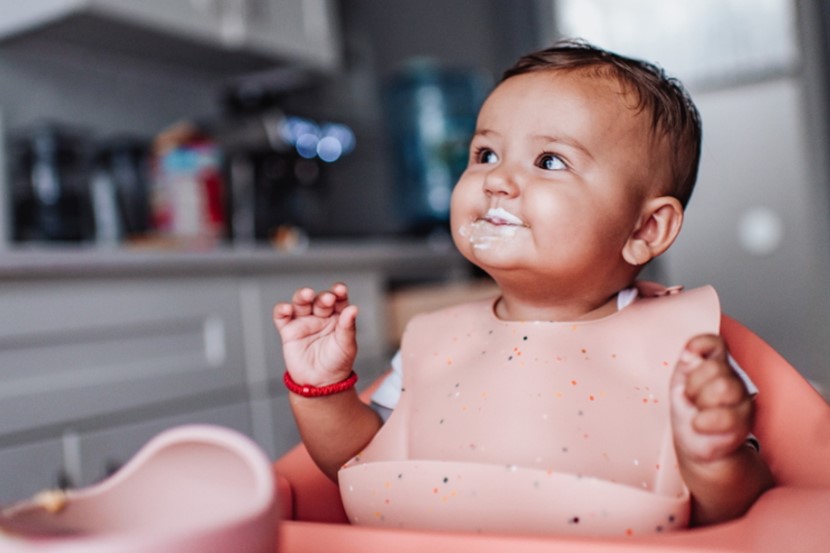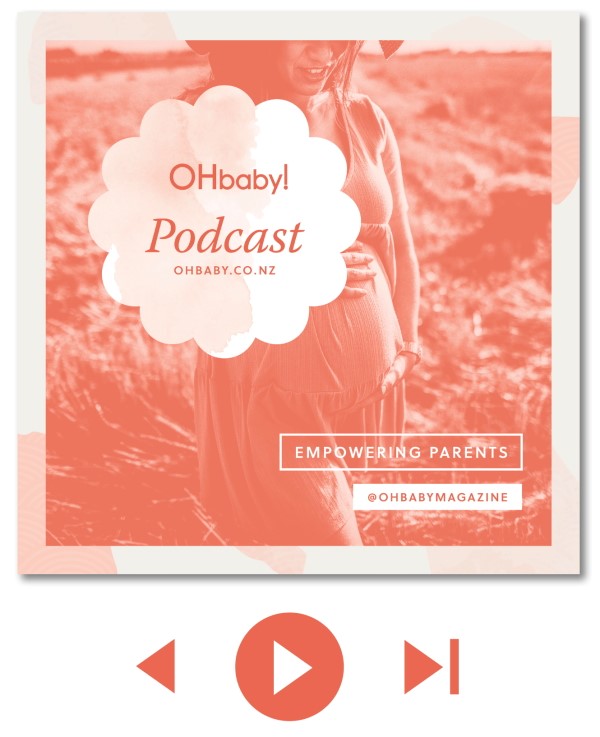Clinical nutritionist Gina Urlich talks all about starting your baby on solids

OHbaby! founder Angela Pedersen talks to OHbaby! clinical nutritionist and founder of Norish baby food, Gina Urlich all about starting solids, including first signs, first foods and more.
Watch this Podcast on YouTube HERE
When is the time to start your baby on solids?
Gina says that there’s no magic number to say when your baby is ready, it’s different for every child. She says to look for a few cues which are:
- Showing an interest in food
- Sitting up unassisted in a high chair
- When they’ve lost their tongue thrust mechanism
What are the essential nutrients babies need when they do start on solids?
Around the 6 month mark is when Gina says that babies iron stores start to drop. “Babies need 11 mg of iron a day (an adult male needs 8 mg). Lean into those nutrient dense foods that are easy for baby to digest and absorb. Having iron-rich food like liver, chicken, beef, lentils/pulses, and pairing them with vitamin C-rich foods which will help with absorption” says Gina. “Haem iron is the most easily absorbed and is from animal products. We tend to think of fruit as a first food, but meat is actually an easy food for babies to digest and a fabulous food for babies.” Gina says that around 5-7 months there's a window where we can offer a diverse range of tastes and flavours to babies so it’s good to make the most of this. “Breast milk is naturally sweet so babies will favour sweet foods, if we start offering sweet foods first baby will be less likely to branch out. In those first couple of months of eating, babies are more open to trying new flavours, by giving them a diverse range it can also help down the line to avoid the fussy eating toddler stage.
How do we set up our little ones’ gut health to thrive?
Gina says that leaning into those wholefoods that are easy for them to digest and making sure they’re getting those essential nutrients such as iron, healthy fats (coconut oil, ghee, butter etc) from nutrient dense foods. She recommends bone broth to help to seal the gut lining, as well as probiotic-rich foods such as kefir and sauerkraut. “Make your baby a wholefoods baby and steer clear of synthetic vitamins or additives” says Gina.
Tell us about spoon feeding versus baby led weaning…
Gina says that there’s no right or wrong way to feed your baby. “You can do one or the other or a combination of both. By spoon feeding, babies do get more nutrients in, but with baby led weaning they’re learning the developmental tools of feeding themselves. If you’re doing baby led weaning there’s lots of safe ways to feed your baby certain foods such as slow cooking meats” Gina says.
What can parents look out for in supermarkets?
“Look at the ingredients of the packet. The packaging can be misleading. Look to see if the ingredients are providing some of those essential nutrients. You want sugar to be under 6 g. Many baby foods have 16-20 g per serve. Look for products that aren’t based on fruit alone and lean away from synthetic vitamins as well as additives and numbers” she says.
What would be the first meal you’d give your baby?
“I’d fork mash some avocado or cooked pumpkin, then once they’re getting used to that I’d start grating in some frozen liver to mix with it” says Gina.
OHbaby! magazine brings you the OHbaby! Empowered Parents Podcast.
 |
|








